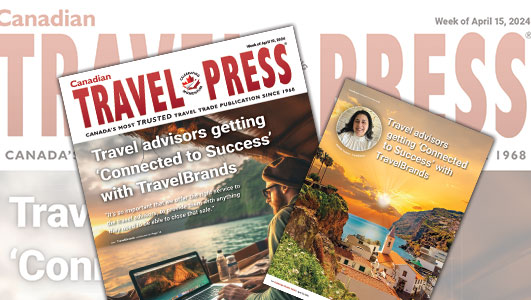Industry Fights The Blight
The global travel industry is losing over $1 billion each year due to the growing spread of travel purchasing fraud, according to experts on the front line of the travel fraud battle, reports western editor, Ted Davis in this week’s digital edition of Canadian Travel Press.
It is being surreptitiously siphoned off, mostly online through numerous travel retailers in smaller dollar bites that can often equal the price of an international economy airfare. On a per-agency basis, the examples of travel purchase fraud might be tallied in terms of thousands of dollars, equal to occasional lost airfares. Collectively though, the cost of fraudulently acquired airfares is steadily climbing, to a current total of roughly $1.4 billion per year to the airline industry worldwide.
This equals about 1% of global airline revenues, and the problem chips away at airline margins, forcing carriers to establish departments and protocols to tackle airline ticket fraud.
But the murky practice of travel fraud is more threatening to individual travel agencies, including online travel agencies. These are the businesses that find themselves in a precarious middle position between the alleged purchaser of airfares and the airlines themselves.
“The $1.4 billion is for the airlines only,” says Jan-Jaap Kramer, founder of TravelFraudGuard, based in the Netherlands. “In most agency sales, the airline is also the ‘merchant of record’ and when fraud occurs, the airline will pass the cost of that onto the agency. The cost for agencies who are the merchants of record is not included in the total ($1.4 billion) amount.” Kramer is an expert in the prevention of credit card fraud in the travel industry and his company assists airlines and travel agencies improve their fraud prevention measures.
Since travel agencies are not the actual vendors of products like airfares, they are open to being victimized by scammers who perceive a transaction gap. They utilize the courtesy time break (usually up to a day) provided to customers so they can confirm their booking decisions.
That’s when a fraudster will contact an agency to say they need to change their original booking (made earlier in the day) to an immediate departure, due to an emergency. They are on the plane and gone before the fraudulent card is revealed. That leaves the agency holding the bag, facing costly debit memos issued by the airlines that have been skimmed.
Some of these techniques and scams were recently described at a series of seminars at locations across Canada by the Canadian Travel Fraud Prevention Working Group.
For the full story, check out this week’s digital edition of Canadian Travel Press by clicking here.



